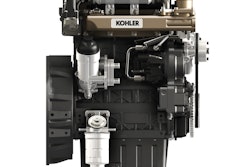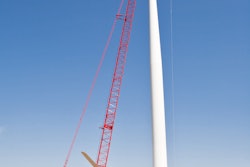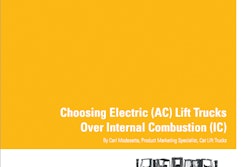Two leading North American clean energy associations, the Fuel Cell and Hydrogen Energy Association (FCHEA) of the United States, and the Canadian Hydrogen and Fuel Cell Association (CHFCA), applaud the release of a groundbreaking U.S. Department of Defense (DOD) study, "Beyond Demonstration: A White Paper on the Role of Fuel Cells in the Department of Defense's Energy Strategy" which supports deployment of fuel cell-based power solutions.
The DOD assessment validates technological and commercial progress made to date by developers of fuel cell technology, recommending that the U.S. Department of Defense proactively evaluate and acquire fuel cell systems for distributed power generation, backup power, material handling equipment, ground support equipment and unmanned vehicles.
"The U.S. Department of Defense is demonstrating innovation and leadership by recommending the adoption of fuel cell technology for a variety of operational, cost and environmental reasons," says Morry Markowitz, Executive Director of FCHEA. "Acquiring fuel cell systems will improve U.S. defense energy usage, protecting and creating jobs in the fuel cell industry."
"The US Department of Defense study confirms that fuel cell technology has moved beyond the demonstration phase, providing a range of operational and financial benefits that are already being enjoyed by a growing list of corporate, government and institutional end-users," remarks Eric Denhoff, President and CEO, CHFCA.
Fuel cell-based products are experiencing significant market adoption in a variety of sectors, including the application areas specifically identified by the Department of Defense:
- Distributed Power Generation - Large multi-megawatt fuel cell systems are being installed at commercial, government and institutional sites to provide primary power (and in some cases heat) for buildings and production facilities. These systems run on natural gas, hydrogen, biogas and other sources. Early adopting end-users include Google, Whole Foods, eBay, Toyota, FirstEnergy, and Walmart.
- Backup Power - Fuel cell backup power solutions are demonstrating their reliability in mission-critical applications such as wireless telecommunication networks and computer data centers. Recently announced adopters include Wind Mobile, Verizon, AT&T Wireless, T-Mobile, Sprint, and Motorola.
- Non-Tactical Material Handling / Ground Support Equipment - Global brands such as Walmart, Whole Foods, FedEx, Sysco, Coca-Cola and BMW are using fuel cell-powered forklift truck solutions - including pallet jacks, reach trucks and large counterbalanced trucks - to dramatically improve productivity in warehouse operations, thereby driving attractive financial results, including payback in under 1-year and return-on-investment in excess of 20%.
- Unmanned Vehicles - Fuel cells are providing clear operational benefits, including weight reduction and mission duration improvements for unmanned vehicles. A number of companies are advancing unmanned vehicles for the military including Boeing who is developing unmanned aerial vehicles powered by fuel cells for the Navy capable of running for 30 days. Another fuel cell manufacturer, Adaptive Materials, has demonstrated a successful unmanned ground vehicle which operated for 12 hours, traveling 40 miles with all cameras and computers activated.
The U.S. Department of Defense is the largest consumer of energy in the country, accounting for approximately 80% of the federal government's energy consumption and spending $4 billion for facilities energy in 2009. Electricity accounted for 64% of the energy consumption at DOD installations in 2009, equating to approximately five times the amount of electricity consumed by the state of Vermont. Legislative mandates, Executive Orders and DOD policies have established aggressive targets for energy use and emissions reductions.
The DOD assessment can be downloaded here: www.dlafuelcells.org.



















